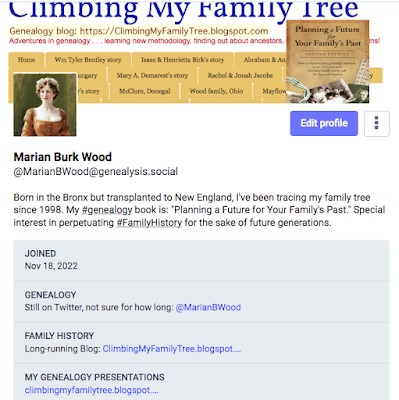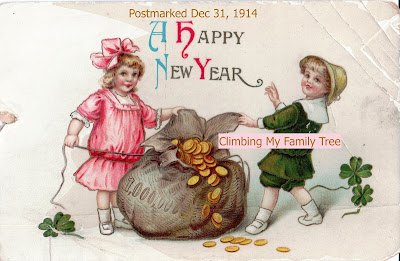When I began my genealogical journey 25 years ago, I had only a vague thought that anyone in my family tree had been directly harmed by the Holocaust. My parents and grandparents never spoke of it, mentioned no names.
It is only because of Yad Vashem testimonies, a photo in one testimony that looked so much like an old photo I'd inherited, and a survivor's video interview that I was able to discover how the horrors of the Holocaust stole the lives of too many of my ancestors.
Last week, my wonderful niece Kay said Kaddish for our murdered ancestors during a visit to Auschwitz. She also felt a sense of relief that some imperiled family members ultimately survived.
I now know the Holocaust victims and survivors in my family tree were descendants and in-laws of my great-grandparents, Herman Yehuda Schwartz (1857-1921) and Hani Simonowitz Schwartz (1858-1933). Herman and Hani raised their children and welcomed grandchildren at their home in Ungvar, Hungary (now Uzhhorod, Ukraine).
Schwartz family survivors
Viola Schwartz (1925-2019), a granddaughter of Herman & Hani, who was held at Auschwitz before being transported to a work camp and then being liberated in May of 1945. My sister met Viola and her family in Israel some years ago!
Dezso Gyula Winkler (1900-1995), a grandson of Herman & Hani, who made his way to Israel after World War II and became a citizen before moving to America, where he later became a naturalized US citizen.
Albert Bela Winkler (1912-1993), a grandson of Herman & Hani (and twin brother of Lili Winkler Feldman, who died in Auschwitz). Albert survived, arriving in America after the war and becoming a naturalized US citizen in the 1960s.
Leni Louise Winkler Price (1909-1997), a granddaughter of Herman & Hani, who evaded capture by first fleeing to Belgium and then sailing to America from Portugal, arriving in America in 1941 with her husband and child.
Schwartz family victims
Rezi Schwartz Winkler (1881-1944) was the oldest child of Herman & Hani. Fate unknown of her husband Moritz Winkler. Their son Albert Bela Winkler survived and submitted testimony about his mother's death in Auschwitz and the death of others in the immediate family:
- Lenke Lena Winkler Zeller (1899-1944), daughter of Rezi, died in a forced labor camp. Her husband Ignatz Zeller survived concentration camps and came to America. One of her sons died in Buchenwald (Tibor, a 15-year-old baker's apprentice), the other survived and came to America.
- Ludwik Winkler (1902-1944), son of Rezi, probably killed in Auschwitz (fate unknown of Ludwik’s wife Masha).
- Blanka Winkler Rezenbach (1904-1944), daughter of Rezi, probably killed in Auschwitz (husband Peter Rezenbach also died in Holocaust).
- Lili Winkler Feldman (1912-1944), daughter of Rezi, killed in Auschwitz (fate unknown of Lili’s husband Sam Feldman).
- Yuelko Feldman (1936?-1944), grandson of Rezi, son of Lili Winkler Feldman & Sam Feldman.
Etel Schwartz Stark (1892-1944), a daughter of Herman & Hani, died in Auschwitz (fate unknown of Etel’s husband Fissel Ferencz Stark and their child Mici Stark).
Paula Schwartz (1898-1944), a younger daughter of Herman & Hani, was killed at Auschwitz. Her daughter Viola survived Auschwitz and also submitted testimony to Yad Vashem, which started me on my quest to learn more a decade ago when I found the written testimony and the photo of Paula.
In-laws who perished in Holocaust include Gyula Preisz (1908-about 1944), who died as a result of being in a forced labor battalion, according to Yad Vashem database. Others were in the Simonowitz side of the family, no specifics known at this time, sorry to say.
May their memories be for a blessing. Never forgotten. Never forget.























